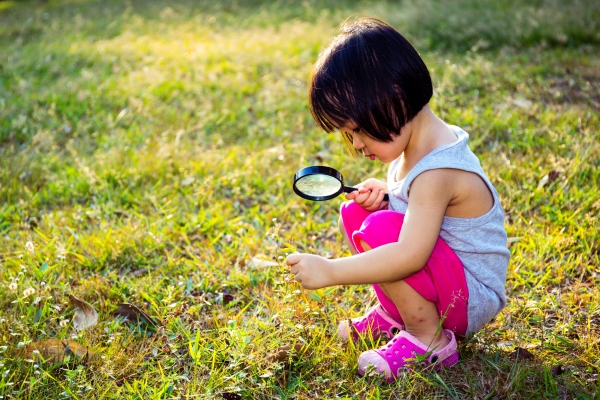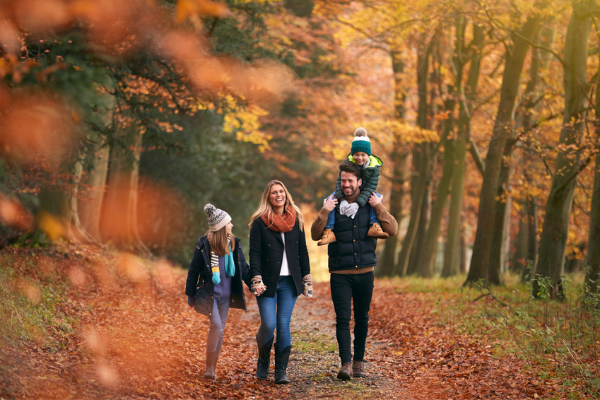The Christmas period will be very different for many people this year – without large family gatherings and parties. The 2020 festive season is set against the backdrop of increased restrictions and the uncertainty of the coronavirus pandemic.
For some people it’s the first time they’ve spent Christmas Day, or the whole festive week, alone.
If that’s you or someone you know, our members have shared their thoughts on some things that may help you get through this time.
Our member Lorraine Collins makes the point: “This Christmas you'll have to take some responsibility of how you’ll experience it. Give yourself the Christmas your loved ones will want you to have.
“This is an opportunity for you to be the best friend you’ve always wanted. Remember – kind, compassionate and non-judgmental.”
Here are our members’ tips for coping with a Christmas on your own.
It’s ok not to be ok
Cate Campbell says: “I think the most effective way to deal with being alone at Christmas, if you don't want to be, is not to pretend it's okay. It's completely normal and understandable to be fed up and sad if your plans have changed or you can't be with your loved ones. It's external events that are unusual and not your reaction to them.”
Focus on what you want to do
Philip Karahassan says: “Have things to focus on for yourself as it'll leave you feeling a little more in control and happy during this time alone. It's been a long year of finding ways to stay practical during lockdown. The holiday season shouldn’t be much different.”
Jackie Rogers adds: “You need to take care of you. Open presents or have dinner with family and friends over FaceTime or Skype. If able go for a walk, taking a flask of hot chocolate and having a mince pie outside with a friend keeping socially distant of course. Or if you want you could just pretend Christmas doesn't exist and snuggle down and watch your favourite films, listen to music or read.”
Plan your days
Lorraine says: “I can't stress enough the importance of making a simple structure for the day.
Get up and out if only to walk around the block.”
Cate agrees: “It's worth planning your days in detail rather than just thinking about what you could do. That way you won't have time to be sad or bored.”
Self-care is important
Emma Brand says: “When our resilience feels low, or we feel lonely or are struggling, self-care is more important than ever. This will look different for everyone. Many people think of self-care as being a bath, but it can be a walk, listening to a favourite song or wearing cosy pyjamas and watching TV.”
Get outdoors
Baljit Kamal highlights the importance of getting outside and into the fresh air.
“Being outdoors in nature can be healing and beneficial for the body and mind. Whether through a neighbourhood park, through a forest or beach, nature offers a calming effect. When we combine nature with physical activity, it can help fight depression and anxiety. Right now in the midst of Covid, there has never been a better time to practice this.”
Practice random acts of kindness
Dee Johnson highlights the benefits of random acts of kindness.
“They make us feel connected , realise we still have worth , purpose and value - as so many people have felt they have lost this since the pandemic.”
That’s something reiterated by Baljit too.
“Those who practice kindness and compassion, see clear benefits towards their well-being and happiness. Whether formally volunteering, being a thoughtful friend, or supporting your more vulnerable neighbours, there's so much you can do to support others over the festive holiday.”
Pick up the phone – or have a video chat
Lorraine stresses how getting in touch with others can be helpful - not just for you.
“Picking up the phone and calling someone might be the call the other person needs and will get you out of your own head for a while. The act of ‘being of service’ to others not only builds self-esteem but fosters connection and an opportunity to share what’s going on for you. By picking up the phone you may well be helping someone else.”
Baljit says: “Although we may be physically apart from our loved ones this year, we don't have to be socially apart. Living in a digital age, we can still connect with our loved ones virtually, via video or phone calls. This may include sharing events from our festive break, irrespective where we are based geographically.”
The internet can be a lifeline
“The internet has also been a huge lifeline for many alone this year. There are public groups and communities on Facebook that can become very close if you’re willing to put in the time to reach out,” says Philip.
And Emma adds: “There are some great initiatives being done on social media over Christmas. Sarah Millican's Twitter #joinin has been running for some years and clients have shared with me they've found this supportive. It can feel a fine balance as social media can bring up a lot of emotions at this time, so if you want to de-activate or take a digital detox, it's all about what works for you.”
Parents – think of your own needs too
“I am conscious of the fact that many parents will be spending their Christmas alone with their kids and no other adults, this brings with a different kind of loneliness,” says Kemi Omijeh.
“Please remember you have needs and wants of your own. Find mini selfish moments in the day where you can, except it's not selfish, it's looking after yourself in order to look after your children.”
Enjoy music and dance
“Put together a playlist of happy songs – or tune into a radio station you like. There are many NOT looping Christmas tunes! Dance - no one will be watching so you can really go for it!” says Lorraine.
Be aware of unhealthy solutions
Baljit adds: “You may feel a drive to fill the gaps with harmful behaviours ,which will be a quick temporary fix, but long term leads to more loneliness, depression and disconnect – so using drinking, gambling ,drugs, food, self-harm as an anaesthetic is not a solution.”
Avoid triggers
“Try not to do anything that you think will be especially triggering - if you think you'll find staying up to see in the New Year or eating turkey too painful, don't do it,” recommends Cate.
"Make this your Christmas, and you might find it's a happy one after all.”
Watch out for negative self-talk
Dee Johnson says how you talk to yourself can make a different too. “It’s vital to stop negative, punishing self-talk,” she says.
She says that negative thoughts such as ‘I should be able to cope’ just increase your feelings of loneliness.
She adds: “This in turn, makes you more harshly self-judgemental, comparing yourself to others - thinking everyone else is having a great time, (which is not true) and what is wrong with me that I'm lonely?”
If you can’t stop those thoughts, Cate recommends limiting them.
Cate adds: “It may help to try to limit negative thoughts to a specific time each day - when you can really let rip - and allow yourself to relax the rest of the time. Tell yourself you're a casualty of a uniquely historic moment - you may want to keep a journal of the Christmas period to share in the future.”
Don’t bottle up your feelings
“If you do find Christmas very painful, let yourself be upset rather than bottling up your feelings,” says Cate.
Emma adds: “One of my favourite tools to use is the 'Magic Five' - thinking ahead to how we might feel in five minutes, five hours, five days or five weeks. Journaling, writing or contacting a friend or support line can help to process and talk your feelings through which helps us to feel less alone. We're all in this together.”
Reach out if you need help
“Although you may feel alone you're not, don't be afraid to reach out and speak to someone if need,” says Jackie. “If you are struggling call a friend or ring one of the helplines.”
Baljit agrees and adds: “One of the most important ways for us not to feel deeply alone, is to feel heard and supported. There are many support groups, charities and helplines available both locally, and nationally. If you find yourself struggling over the festive break, talk to someone, whether it's a counsellor, a trusted family member or a friend."
To find a counsellor or psychotherapist who can help you visit our Therapist Directory.

Thinking about therapy?
If you're not sure whether therapy could help, what type of therapy you need, or how to find a safe and effective therapist, we'll help you find the information you need.

What therapy can help with
An A-Z list of issues and concerns which may be helped by talking to a counsellor.

How to look after your wellbeing this Christmas
Our member Lina Mookerjee offers advice to cope this Christmas with the uncertainty of coronavirus and Brexit
